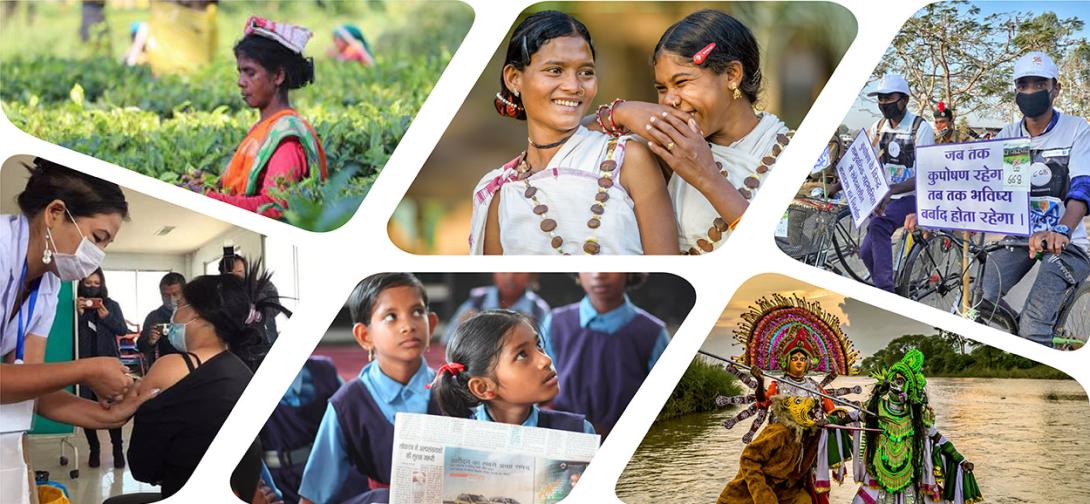Making Homes Safer for Women during Covid-19
Around the world, countries are struggling to rein in the spread of the novel coronavirus outbreak. In India, nearly 1.3 billion people are currently under a nationwide lockdown, which has been extended till 17 May.
During this period, violence against women has significantly increased in Australia, Brazil, China, France, UK and other countries. Physical violence against women is extremely widespread, with intimate partner being the most common. Globally, one in three women have experienced physical and/or sexual violence by an intimate partner or sexual violence by any perpetrator in their lifetime. Violence against women remains a major threat to public health and women’s health during emergencies.
Violence against women tends to increase during any type of emergency, including epidemics and pandemics. Older women and women with disabilities are likely to have additional risks and needs. Women who are displaced, migrants, and living in conflict-affected areas are particularly vulnerable during pandemics.
The literature of domestic violence recommends that when men and/or women are employed, domestic violence tends to fall as interactions between couples reduce. Under the lockdown, interaction time has increased, and families have been left without access to the outside world. Previous research also suggests that violence is a way for the man to assert his notion of masculinity. The current atmosphere of fear, uncertainty, food insecurity, and unemployment may create feelings of inadequacy in men. All these factors are likely to worsen stress at home and make women victims of those stress. The lack of access to friends, family and support organizations is expected to aggravate the situation for abused women further. The disruption of livelihoods and ability to earn a living, including for women (many of whom are informal wage workers), will decrease access to basic needs and services, increasing stress on families, with the potential to exacerbate conflicts and violence.
The UN has been alerting the world about this problem and calling attention to the need to promote strategies to protect women against violence. Women and men experience and react to health emergencies differently. There is evidence that families that have experienced domestic violence in the past are more likely to experience domestic violence in an emergency, and women appear to be unprotected because they are not focused on it.
The NFHS-4 data shows that married women who have ever experienced spousal violence constitute around 31.1% in India, with the proportion being 25.3% in urban areas and 34.1% in rural areas. The actual reports of violence against women to the police or other agency are negligible. The underreporting of domestic violence cases to police and authorities is due to societal shame, stigma, and fear of repercussions, among other reasons.
The National Commission for Women (NCW) provides support and assistance to women in distress or experiencing domestic violence in India. According to NCW data, during lockdown, violence against women has increased in India as well. It received 123 complaints regarding domestic violence against women from 27 February to 22 March (before the lockdown) and 250 complaints from 23 March to 22 April (during the lockdown).
Violence against women can result in fatal and non-fatal injuries and serious physical, mental health problems (for example, depression and anxiety), sexual and reproductive health problems, including sexually transmitted infections, HIV, and unplanned pregnancies, also resulting in death in extreme cases.
In normal situations, assistance is offered by governmental as well as non-governmental organizations to women who face domestic physical violence; nevertheless, there is significantly less access to such resources during lockdowns. With constraints on movement, women cannot leave their homes to find safety and security with friends or prolonged family.
How to Address This Issue during Pandemic
The Covid-19 pandemic has placed an enormous burden on health systems, including frontline health workers, and there is need to take proactive steps to reduce the effects of violence against women.
Informal networks are likely to be the first source of informal disclosure for victims of any age throughout diverse settings. Engaging in informal networks has also become a key technique for the safety of women experiencing violence. Online complaint links, emails and WhatsApp-based network can be encouraged.
There is a need to increase temporary operations for existing violence prevention and response hotlines and outreach centers as well as increasing interaction and awareness of services through routine news and advocacy efforts.
There should be identification of women at risk of violence present in all testing and screening locations, such that recommendations for ‘self-quarantine’ or ‘shelter at home’ are accompanied by an assessment of the safety of doing so. Health facilities should identify and provide information about services available locally (for example, shelters, rape crisis centers, counselling) for survivors, including opening hours, contact details, and whether services can be offered remotely, and establish referral linkages.
Health providers need to be aware of the risks and health consequences of violence against women. They can help women who disclose by offering first-line support and medical treatment. The use of mHealth and telemedicine in safely dealing with violence against women need to be explored.
The arrangement of cash transfers and ration support are likely to sustain the household and reduce stress in the household, leading to lower violence against women. Arrange alternative accommodation for women who may need this.
*Narinder Rawat is a Consultant, NITI Aayog. Views expressed are personal.
 National Portal Of India
National Portal Of India 








